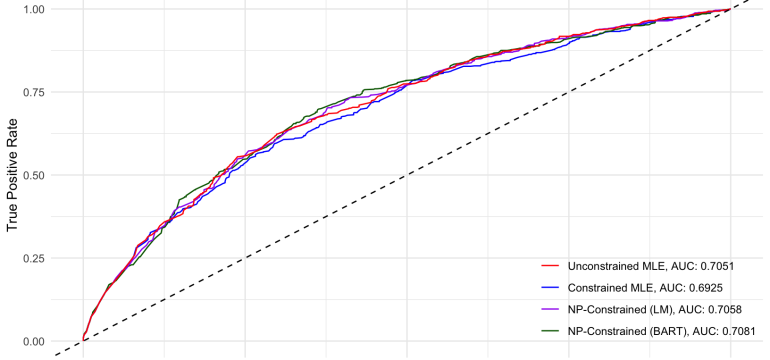Authors: Razieh Nabi, Nima S. Hejazi, Mark J. van der Laan, David Benkeser
Published on: April 15, 2024
Impact Score: 8.0
Arxiv code: Arxiv:2404.09847
Summary
- What is new: The research presents a new framework for achieving fairness in machine learning models through a constrained learning approach, providing closed-form solutions for optimal parameters.
- Why this is important: The challenge of developing predictive models that adhere to pre-defined fairness constraints without sacrificing predictive accuracy.
- What the research proposes: A Lagrange multiplier formulation for constrained statistical machine learning, allowing for the identification of function-valued parameters that meet fairness constraints.
- Results: Demonstration that closed-form solutions for optimal constrained parameters can lead to fairer predictive models, applicable across various statistical learning approaches.
Technical Details
Technological frameworks used: Lagrange multiplier formulation for penalized risk criterion
Models used: Statistical machine learning models with fairness constraints
Data used: Estimates from unconstrained parameters of the data generating distribution
Potential Impact
Companies and sectors relying on predictive algorithms for decision-making, including finance, healthcare, and HR, could significantly benefit or be disrupted by the adoption of these fairness-enforcing methods.
Want to implement this idea in a business?
We have generated a startup concept here: FairFrame.




Leave a Reply